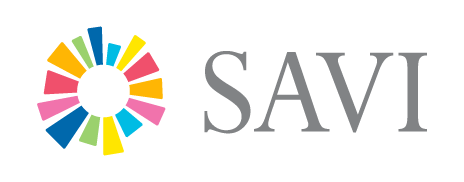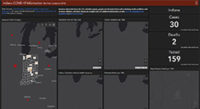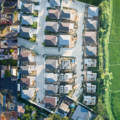The Polis Center at IUPUI has received the Indiana Geographic Information Council’s (IGIC) Special Achievement in GIS Award for the SAVI Coronavirus Data Hub. IGIC President Kari Hicks says, “Given the impact of COVID-19, using GIS to create a dashboard to help inform data-driven decision making is an excellent and timely use of GIS technology.” The award, announced during the 2020 IGIC Virtual Conference on Sept. 30, recognizes special geospatial projects developed through teamwork that demonstrate commitment to working with others in the Indiana GIS community toward a common goal, while performing important, often pioneering work, to create an outstanding information resource.
The SAVI Coronavirus Data Hub was created with a diverse team within Polis, including experts in GIS, health informatics, community informatics, racial equity, social disparities, and information design. And it was developed in collaboration with many community partners.
“In early 2020, decision makers lacked critical data to understand the extent, risk, and impact of COVID-19 on our population,” said Sharon Kandris, Polis Associate Director and Director of Community Informatics. “They knew needs of residents were shifting because of the pandemic but lacked data to assess where to dedicate resources such as funding, emergency food supplies, WiFi access, and health resources. Data on COVID-19 rates initially were not available in easy to use formats. In response, Polis created the SAVI Coronavirus Data Hub to provide health and human services practitioners, civic leaders, policymakers, researchers, and media with access to essential location-based data to guide their decisions.”
The hub includes mobile-friendly maps, dashboards, and reports highlighting disparities and inequities for hard-hit or at-risk neighborhoods and populations. A dashboard tracks confirmed cases, testing, and deaths for each county in Indiana, and a second tracks trends for US counties. Hub content includes school cases, social isolation in older adults, locations of emergency food/meals and community center service areas, inequalities of COVID-19 disparities for Indianapolis Blacks, neighborhood risk factors in Bloomington and South Bend, COVID-19 impact on Indiana businesses and Black and Latino neighborhoods, and needs by neighborhood (2-1-1 calls, unemployment claims, predicted eviction rates, and rental assistance applicants.
“We partnered to pull together the data and define the needs for the information and collaborated on the use of the data with partners such as United Way of Central Indiana and the Indianapolis City-County Council,” said Kandris. “We have hosted a series of events since spring 2020, providing highlights from our analysis of neighborhood-level health and economic impacts of COVID-19 in Indianapolis and showing participants how to use the data to inform solutions to COVID-19 related challenges.”
The Indianapolis City-County Council passed a Special Resolution earlier this year to address the historical inequities of race, place and identity throughout City-County government and appointed a steering committee tasked with leading that process. “The SAVI Coronavirus Data Hub has been crucial to increasing awareness of these inequities and making the data available in meaningful, user-friendly formats that allow our councilors and department leaders gain easy access to the information,” said Vop Osili, President, City-County Council District 11. “SAVI provided timely access to an interactive report and map on the hub describing the inequities behind the disparities for African Americans in Marion County, which our Government Alliance on Racial Equities committee used to understand these issues more deeply. This summer, for the first time in its history, the council used data to equitably distribute funding across our districts in areas where the need was greatest. The location-based data from the SAVI hub was instrumental in helping the council reach decisions about where to allocate the funding.”
Local and state media have used the SAVI Coronavirus Data Hub to inform stories. For instance, Polis helped WFYI in its coverage earlier this year of how lack of internet access impacts e-learning opportunities for children. “The Polis Center is aware of the big picture and the important context of data to explain that picture,” said Greg Petrowich, WFYI President and CEO. “With the arrival of COVID-19 and the urgent need for real-time and well-informed decisions, the hub helps us all understand the reality and the gaps that must be addressed. It enables more sound decision making, powerful reporting, and deeper community engagement to seek shared solutions to vexing challenges. The tool is critical in such a fluid environment.”




